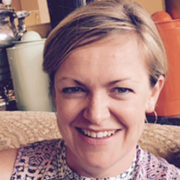Presentations

Human milk magic, our 23rd online breastfeeding conference in English covered a wide range of topics to inform and guide your clinical practice and to inspire and challenge your thinking about breastfeeding, nutrition and human lactation.
Re-certifying IBCLCs may find this document giving details of the presentations’ Detailed content outline topics helpful, Quick reference for CERPs.
iLactation also offers annual conferences in Spanish and Dutch.

LGBTQ+ infant feeding
BJ Woodstein, IBCLC, PhD - Read moreLGBTQ+ infant feeding
BJ Woodstein, IBCLC, PhD
Dr BJ Woodstein is an IBCLC, doula, translator and writer in Norwich, England. Two of her most recent books are We’re Here! A Practical Guide to Becoming an LGBTQ+ Parent and The Portrayal of Breastfeeding in Literature. She lives with her wife and their daughters in Norwich, England.
LGBTQ+ infant feeding
This presentation will explain terminology around LGBTQ+ people/parents and then go on to discuss the ethical and practical issues involved in LGBTQ+ infant feeding. It will cover a range of queer feeding approaches, included induced lactation and co-feeding. The audience will gain knowledge and confidence in regard to supporting LGBTQ+ families.
1.25 L (V,VII) CERP, 1.25 CME and 1.25 CNE

Keep it responsive - introducing solid foods and continuing breastfeeding
Miriam Feen, IBCLC - Read moreKeep it responsive - introducing solid foods and continuing breastfeeding
Miriam Feen, IBCLC
Miriam Feen has been supporting parents for 15 years. She has a private practice and also works in the NHS in London UK.
Miriam started to be interested in the Lactation field after challenges in her own feeding journey. She became a peer supporter and volunteered for many years in her local area of London. She wanted to expand her knowledge and continued to study, becoming an IBCLC in 2013. She believe that all families deserve the right to feed their babies the way they want to and she offers non-judgmental support. Breastfeeding is so much more than just feeding your baby.
Miriam works in private practice where she supports parents on their infant feeding journey from the antenatal to postnatal period or whenever they choose to end their feeding journey and supports parents in all aspects of early parenthood. She believes that the parent’s instinct is the greatest knowledge of all as they are synchronized to their baby’s needs and they are the experts and she tries to empower them.
She provides one-to-one face-to-face consultations in the clients home, or remote support via video and phone call consultations.
Miriam provides many educational sessions to parents, birth workers and healthcare professionals.
Miriam currently works in the NHS as a lactation consultant in the specialist breastfeeding clinic for complex cases and as a lactation consultant in the tongue-tie clinic.
Keep it responsive – introducing solid foods and continuing breastfeeding
Introducing solid foods to babies can present challenges for parents on how to continue breastfeed. Breastmilk is still the most important nutrient for babies under one year old alongside exploring new foods.
In this presentation we will discuss the importance of continuing responsive breastfeeding/chest-feeding, how feeding can change, different ways to introduce solid foods and how to support families with the correct information.
1.25 L (I,V,VII) CERP, 1.25 CME and 1.25 CNE
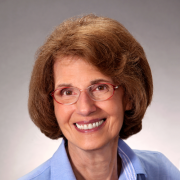
Exclusive pumping: pros, cons, considerations
Marsha Walker, RN, IBCLC - Read moreExclusive pumping: pros, cons, considerations
Marsha Walker, RN, IBCLC
Marsha Walker is a registered nurse and international board certified lactation consultant. She has been assisting breastfeeding families in hospital, clinic, and home settings since 1976. As such, she advocates for breastfeeding at the state and federal levels. She served as a vice president of the International Lactation Consultant Association (ILCA) from 1990-1994 and in 1999 as president of ILCA. She is a previous board member of the US Lactation Consultant Association, Baby Friendly USA, Massachusetts Lactation Consultant Association, and the Massachusetts Breastfeeding Coalition. She serves as Associate Editor of Clinical Lactation, and a board member of the National Lactation Consultant Alliance. Marsha is an international speaker, and an author of numerous publications including ones on the hazards of infant formula use, Code issues in the US, and Breastfeeding Management for the Clinician: Using the Evidence, 5th edition.
Exclusive pumping: pros, cons, considerations
Approximately 85% of mothers have expressed milk sometime since their infant was born. About 5.6% of these mothers exclusively pump their milk. There are many reasons for this and a number of unanswered questions regarding the practice–do the same health advantages accrue to the exclusively pumping mother compared with a parent that directly breastfeeds (reduction in reproductive cancers, type II diabetes, myocardial infarction, metabolic syndrome)? Are there different health outcomes for the infant? Is pumped milk equivalent to milk directly fed from the breast? This presentation will explore the many nuances of expressed breastmilk, breast pumps, pumping more effectively, typical problems and possible interventions. Recommendations will be provided for a healthy, successful experience.
1.00 L (II,VI,VII) CERP, 1.00 CME and 1.00 CNE

An introduction to bias awareness
Vanisha Virgo - Read moreAn introduction to bias awareness
Vanisha Virgo
Vanisha Virgo is a childcare professional, Doula/Birthworker, infant feeding and baby wearing consultant, author and speaker.
Her work in the education and birth world highlighting the need to create this presentation. She is a strong advocate for equity, especially within the fields she work in as this are where the most vulnerable people are and where most people are silenced and harmed.
An introduction to bias awareness
This is an introduction presetnation that is aimed at starting an uncomfortable conversation for all that are in roles that directly or through managerial roles provide support to all of the public including people who are black, brown, ethnic minority and other marginalised people.
1.00 R (V,VII) CERP, 1.00 CME and 1.00 CNE

Family approach to reaching breastfeeding goals: a father’s role
Reginald Day, CLC, CHW - Read moreFamily approach to reaching breastfeeding goals: a father’s role
Reginald Day, CLC, CHW
Reginald Day is a Certified Lactation Counselor and Community Health Worker with over 6 years of experience serving families and specifically fathers. Specializing in fatherhood and perinatal support, Reginald uses his experience to walk alongside families and fathers during the parenthood journey by supporting with coaching, community resources and connections.
By ensuring that the whole family is centered and that the SDoH needs are factored into the care of families, Reginald has made good use of his bachelor’s degree in Health Service Administration from University of Detroit Mercy along with his CLC and CHW certification. Having served as an administrator in home health for over 12 years he decided to follow his passion for serving and uplifting families. Over the years, Reginald has grown his community connections and shared his experience by participating in many local, state, and national conferences, ensuring that fathers are centered along with mom and baby in maternal and infant health care.
When he is not working and supporting families, Reginald enjoys being with his family whether outdoors enjoying nature or sharpening his photography and videography skills.
Family approach to reaching breastfeeding goals: a father’s role
Fatherhood involvement early on lends itself to better outcomes as it relates maternal and infant health. This presentation aims to explore not only the benefits of fatherhood involvement but also practical ways to encourage that involvement looking at breastfeeding as a means to do so.
1.50 L (V,VII) CERP, 1.50 CME and 1.50 CNE
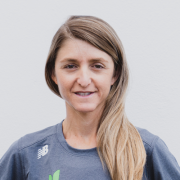
Keeping the flow while returning to sports: the breastfeeding athlete
María Jose Vallasciani, MS, RDN/LD, RN, CNSC, IBCLC, CSSD - Read moreKeeping the flow while returning to sports: the breastfeeding athlete
María Jose Vallasciani, MS, RDN/LD, RN, CNSC, IBCLC, CSSD
María Jose Vallasciani is a Registered Dietitian and Nurse, as well as Lactation consultant working in the NICU at Holtz Children’s Hospital and Outpatient in the Genetics Clinic at the University of Miami, in Miami Florida, USA. She is the founder of MVNUTRITION, a private practice that focus on sports and pediatric nutrition, clinical, pregnancy and lactation. María is also a former professional and NCAA Division 1 college tennis player and also an ironman athlete.
Keeping the flow while returning to sports: the breastfeeding athlete
The presentation reviews sports nutrition and its application to the breastfeeding females athlete and the postpartum athlete.
1.00 L (I,II,V,VII) CERP, 1.00 CME and 1.00 CNE

Breastfeeding as a human right: the evidence, the ethics and the urgency
Ellen Maughan, JD, IBCLC - Read moreBreastfeeding as a human right: the evidence, the ethics and the urgency
Ellen Maughan, JD, IBCLC
Ellen Maughan, is a retired attorney who has been helping families achieve their lactation goals for over 27 years, first as a La Leche League Leader and since 2001, as an International Board Certified Lactation Consultant. Ellen has worked as an IBCLC in hospital, WIC and pediatric office settings as well as in her own private practice. In 2019, Ellen transitioned primarily to lactation policy work and collaborated with the New Jersey Department of Health to create the New Jersey Breastfeeding Strategic Plan, a roadmap of lactation policy recommendations released in September 2022. She serves on other family health policy-making groups and actively advocates for lactation rights and policies with the New Jersey Breastfeeding Coalition as a trustee and past president. In addition, Ellen is an adjunct faculty member in the Human Lactation pathway 2 program at Drexel University, Philadelphia, USA where she co-teaches the Public Policy of Breastfeeding course. She speaks nationally on lactation rights and advocacy topics.
Breastfeeding as a human right: the evidence, the ethics and the urgency
Breastfeeding has been declared a human rights issue by United Nations experts for over 5 years, yet the right to breastfeed continues to be undermined in the health care system and in society by numerous commercial and other influences. This presentation will explore the theoretical, ethical, and evidential bases for protecting breastfeeding as a human right, the barriers this protection continues to face, and recommended strategies for advancing this human right in public health, educational and social arenas that can be used by lactation clinicians, advocates and policymakers alike.
1.00 E (VII) CERP, 1.00 CME and 1.00 CNE
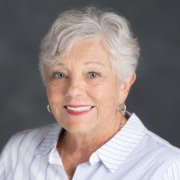
Microbiome and metabolome of human milk
Maureen Groer, BS, MSN, PhD - Read moreMicrobiome and metabolome of human milk
Maureen Groer, BS, MSN, PhD
Dr Maureen Groer is a Professor in the College of Nursing at the University of Tennessee, Knoxville, TN, USA She is a Family Nurse Practitioner and a human physiologist. She has had a long research history in breast milk biology and benefits of lactation for women and children. Her research has been funded by NIH, and she has over 140 publications.
Microbiome and metabolome of human milk
This presentation will review the current state of science in human milk microbiome and metabolome. And also discuss how this biochemistry and microbiology affects the quality and nature of human milk in various populations. It will go on to describe ways in which these variables can be altered in states of health and illness.
1.00 L (I, VII) CERP, 1.00 CME and 1.00 CNE

Eating disorders in the perinatal client: a trauma informed model
Kristin Cole Cavuto, MSW, LCSW, IBCLC - Read moreEating disorders in the perinatal client: a trauma informed model
Kristin Cole Cavuto, MSW, LCSW, IBCLC
Kristin Cole Cavuto is a Licensed Clinical Social Worker and International Board Certified Lactation Consultant in private practice in central NJ, USA Her practice specialties are low supply, parental and infant mental health, and the intersection of ethnicity, sexual orientation, and gender in the care of the new family. They have spoken on various lactation, mental health, and equity topics for many regional, national, and international conferences and organizations. She serves as a legal advocate and expert witness for cases involving lactation and child welfare.
Eating disorders in the perinatal client: a trauma informed model
As lactation professionals, we see clients who are experiencing many challenges during the perinatal period. Clients with eating disorders are uniquely at risk, as are their babies. This presentation will educate the perinatal professional about how eating disorders present in the childbearing year and beyond. It will explore the connection between trauma and disordered eating, and teach how to be a trauma informed provider for eating disordered clients.It will give detailed information on binge eating disorder, bulimia, anorexia, and orthorexia, focusing on how they present during pregnancy and postpartum. It will discuss the specific and unique challenges the person with an eating disorder may have during lactation, including postpartum body image, elimination diets, and provider bias. The learner will gain the skills needed to screen for disordered eating and provide culturally humble and appropriate referral for congruent care.
1.00 L (I,III,V,VII) CERP, 1.00 CME and 1.00 CNE

Reflux symptoms in babies - is it an acid problem?
Carol Smyth, IBCLC, MBACP - Read moreReflux symptoms in babies - is it an acid problem?
Carol Smyth, IBCLC, MBACP
Carol Smyth is an IBCLC and CBT therapist. She lives and works in Northern Ireland and is the author of Why Infant Reflux Matters. She is passionate about minimising the gap between societal expectations of normal baby behaviour and what is physiologically normal for babies, and in improving mental health for the whole family.
Reflux symptoms in babies – is it an acid problem?
Over the past 30 years there has been a increasing trend of treating crying babies with reflux medications, however research tells us that reflux is normal in young babies and acid suppressants don’t reduce crying. This presentation looks at the research and symptoms attributed to GORD which are actually misunderstood communications or feeding problems, and how they might be resolved/reduced.
1.25 L (III,VII) CERP, 1.25 CME and 1.25 CNE

From womb to world, the journey that shapes our lives
Anna Verwaal, RN, CLE - Read moreFrom womb to world, the journey that shapes our lives
Anna Verwaal, RN, CLE
Anna Verwaal is a birth consultant, primary period teacher, lactation instructor and nurse with a mother-child specialization. Her expertise is preconception to postnatal education and counseling. Since 1995 Anna has been a member of APPPAH, the Association of Pre and Perinatal Psychology and Health and is closely associated with the founders and pioneers of pre and perinatal psychology. Since 2006 she has given lectures and workshops worldwide on pre- and perinatal imprints and trauma, hormonal physiology, and the psychological, emotional, cultural and spiritual aspects of the birth process.
From womb to world, the journey that shapes our lives
It has been scientifically proven that conception, pregnancy and birth form a deep imprint on a human life. During this lecture it becomes clear how important it is to know more about the way pre- and perinatal imprints, fears or traumas can affect newborn babies, (young) children and adults, and what we can do to prevent re-activation and support healing imprints.
1.50 L (V,VII) CERP, 1.50 CME and 1.50 CNE

Supporting autistic parents with infant feeding
Aimee Grant, PhD - Read moreSupporting autistic parents with infant feeding
Aimee Grant, PhD
Dr Aimee Grant is a Senior Lecturer in public health and a Wellcome Trust Career Development Fellow, at Swansea University UK. Aimee’s postdoctoral research has focused on experiences of pregnancy and early parenthood for marginalised groups, including white working class and Disabled people. In 2019, she was diagnosed as Autistic and began researching Autistic reproductive health. She is interested in qualitative methodological development and has written two books to date: Doing Excellent Research With Documents (Routledge, 2019) and Doing Your Research Project With Documents (Policy Press, 2022). She is currently writing The Autism-friendly guide to pregnancy (and the fourth trimester), which will be published in 2024.
Supporting autistic parents with infant feeding
Around 3% of people are autistic, and communicate and experience the sensory world differently. Autistic birthing people are often highly motivated to breastfeed, but can experience additional challenges compared to non-autistic parents. This presentation highlights the known challenges and strategies to overcome them, aiming to increase confidence in working with autistic parents.
1.00 L (III,V,VI,VII) CERP, 1.00 CME and 1.00 CNE
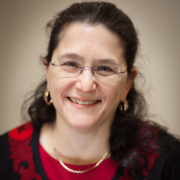
Ethical issues in human milk exchange
Naomi Bar-Yam, MSW, PhD, ACSW - Read moreEthical issues in human milk exchange
Naomi Bar-Yam, MSW, PhD, ACSW
Dr Naomi Bar-Yam has been working in maternal and child health for over 35 years as an educator, researcher, advocate, and writer. Her professional training is in social work and social policy. Naomi is past president of the Human Milk Banking Association of North America (HMBANA) and the founder and director emerita of Mothers’ Milk Bank Northeast, which provides safe donor milk to hospitals and families throughout the northeastern US. She is thoroughly versed in and speaks widely on technical, ethical and policy aspects of milk banking and breastfeeding.
Ethical issues in human milk exchange
Human milk has been a commodity of exchange for millennia. This presentation explores contemporary ethical issues in human milk exchange, including donation verse payment, safety for recipients, protection for suppliers, allocation of this scarce resource, and making the resource less scarce.
1.25 E (VII) CERP, 1.25 CME and 1.25 CNE

Impact of chrononutrition, infant feeding and circadian rhythms
Adrienne Guirguis, IBCLC, CSOM - Read moreImpact of chrononutrition, infant feeding and circadian rhythms
Adrienne Guirguis, IBCLC, CSOM
Adrienne Guirguis, a board certified lactation consultant has over 25 years experience in helping breastfeeding infants and their families. She began her journey into the world of lactation after struggling to breastfeed her oldest son. She became an accredited La Leche League leader and was able to help babies breastfeed. Her experience with La Leche League led Adrienne to become a International Board Certified Lactation Consultant (IBCLC). She has been board certified for 20 years and has experience with a wide range of problems that may be experienced by new families. Adrienne has worked in hospital for over 10 years and then worked in community health for many years. She is currently in private practice – a clinical practitioner, working hands on with families to improve feeding outcomes.
Adrienne continues her lactation education, constantly attending conferences and courses to stay up-to-date on the information and skills needed to benefit those who most need breastfeeding help. In 2022 Adrienne completed the Holistic Integrative/Functional Lactation course, a year long program followed by a residency. This course has increased her skills to provide the best care for the families with whom she works.
Adrienne also is an educator, working within the community to teach others the skills necessary to become lactation counselors and eventually board certified lactation consultants. Adrienne is married and the mother of two grown sons.
Impact of chrononutrition, infant feeding and circadian rhythms
Chrononutrition can be defined as the relationship between eating, circadian rhythms and health. In today’s world, many infants are fed expressed breastmilk. We look at the research to see the impact of infant feedings both at breast and via bottle and it’s relationship to infant health and development.
0.75 L (I,II,V,VII) CERP, 0.75 CME and 0.75 CNE

Unpacking the expertise: developing the UK infant feeding competencies framework
Phyll Buchanan, MSc (Oxon), Eleanor Campbell, BSc, IBCLC, PGCE & Zoe Faulkner, BA (Hons), IBCLC - Read moreUnpacking the expertise: developing the UK infant feeding competencies framework
Phyll Buchanan, MSc (Oxon)
Phyll Buchanan is a Breastfeeding Network (BfN) Supporter, tutor and supervisor. She is a co-author of the recently updated Cochrane review ‘Support for healthy breastfeeding women with healthy term babies’ and helped to lead on stakeholder and parent co- production for the NIHR-funded Action4Breastfeeding study. She was one of the founders of the UK Breastfeeding Network (BfN) in 1997 and was seconded to the Department of Health for three years 2008-11.
Eleanor Campbell, BSc, IBCLC, PGCE
Eleanor Campbell is the Chair of the Association of Breastfeeding Mothers. She has been involved on third sector breastfeeding support since 2013, as a peer supporter, breastfeeding counsellor. As an educator, her focus is on improving access to training and accessibility of training materials.
She has a private practice as an IBCLC in London, where she lives with her three daughters.
Zoe Faulkner has been Chair of Lactation Consultants of Great Britain (LCGB) since 2015. Zoe worked as a Breastfeeding Peer Support Coordinator for 15 years for Sussex Community NHS Foundation Trust in Brighton and Hove, managing, training and supervising around 40 volunteers at any one time. She is now in a Breastfeeding Specialist role, providing support to families experiencing persistent and complex challenges as well as supporting the implementation of BFI standards.
Zoe is co-author of The role and practice of the IBCLC in GB research project. Other work includes co-writing a number of articles for Midirs.
Zoe also teaches breastfeeding to NHS colleagues and is a visiting lecturer at the University of Brighton. She has also spoken at a number of national and international conferences, such as ILCA, iLactation and MAINN, where she has presented on The role and practice of the IBCLC in GB and topics relating to Breastfeeding Peer Support. She is also a former NICE Guideline committee member. Zoe has a small private practice as an IBCLC in her local area. and also sits on the ILCA Board of Directors.
Unpacking the expertise: developing the UK infant feeding competencies framework
This presentation discusses the development of the UK Infant Feeding Support Competencies Framework: a tool that sets out the range of knowledge, skills and attributes required by the infant feeding workforce and maps them against different roles or groups of similar roles. The purpose is to improve services and workforce diversity by identifying shared knowledge and skills, and unique characteristics of roles within the UK infant feeding support workforce.
1.50 E (VII) CERP, 1.50 CME and 1.50 CNE

